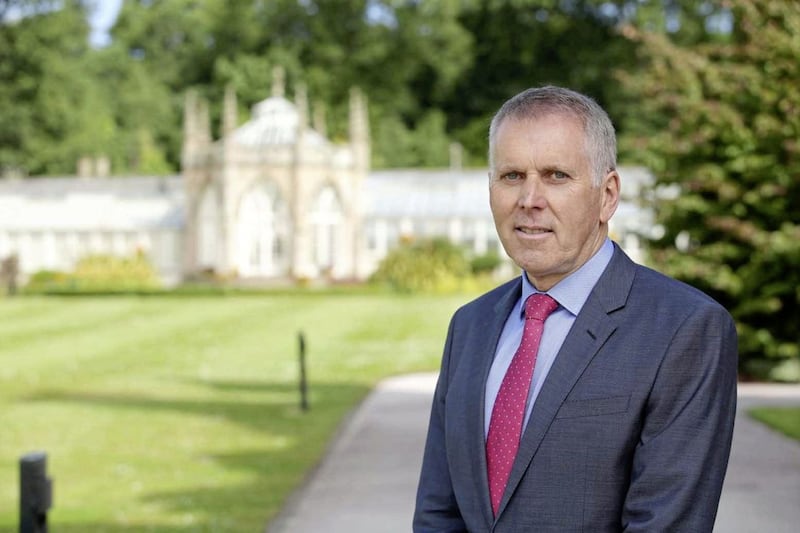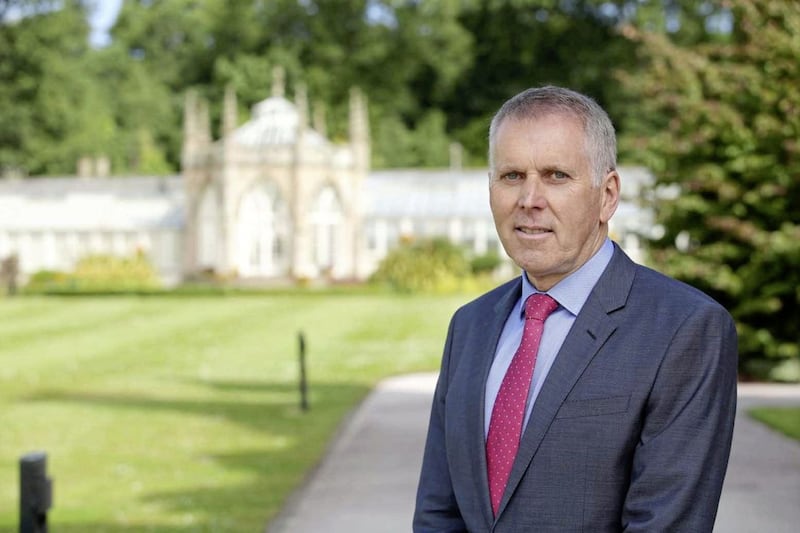A WATCHDOG is to issue the Northern Ireland Civil Service with recommendations on record-keeping following concerns over its lead official admitting attempts to frustrate Freedom of Information disclosures.
Information commissioner Elizabeth Denham met with civil service chief David Sterling yesterday to discuss data management.
Mr Sterling sparked controversy in March when he said some meetings were not minuted to avoid disclosures through Freedom of Information (FOI) requests.
He told the RHI inquiry the DUP and Sinn Féin were "sensitive to criticism" and it was "safer" not to have a record which might be released through FOI.
His comments were branded "scandalous", and the Information Commissioner's Office (ICO) said it would be contacting him "as a matter of urgency".
In July, The Irish News revealed the ICO would be carrying out an audit of the Northern Ireland Civil Service (NICS) to assess its compliance with FOI legislation.
In a joint press release yesterday following their meeting, Ms Denham said she would be making recommendations to NICS to promote good practice across Stormont departments.
"Creating and preserving records of key decisions are the foundation of good governance, accountable and transparent government. They are also key to inspiring the public in Northern Ireland and the rest of the UK to have confidence in their information rights," she said.
"I'll be making recommendations to improve practice to the NICS that apply irrespective of the technology or the messaging platform used.
"These recommendations will be equally relevant to other public administrations in the UK in the context of the use of new technologies and increasingly transitory communications systems."
Mr Sterling welcomed the meeting and said they had a "constructive discussion about the importance of effective information governance".
"Following a discussion with permanent secretaries of all NI departments, I assured the commissioner of our commitment to maintaining good records of government business, including documenting key decisions," he said.
"As part of that commitment, the NICS will, in consultation with the Information Commissioner's Office, review and refresh existing records information management procedural guidance."
FOI legislation was introduced in 2000 and gives people a right of access to an array of information held by public bodies.
Mr Sterling told the RHI inquiry the practice of taking minutes had lapsed after devolution when engagement between civil servants and Stormont executive ministers became more regular and the pace of life increased.
He added: "The two main parties have been sensitive to criticism and I think it is in that context that as senior civil service we got into the habit of not recording all meetings on the basis that it is safer sometimes not to have a record that for example might be released under Freedom of Information."
Later, in response to correspondence from Sinn Féin vice president Michelle O'Neill, Mr Sterling said he was never asked not to take minutes of meetings by any of the ministers he worked for.







